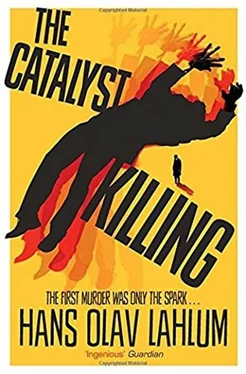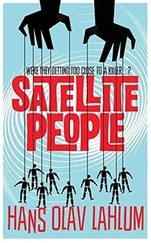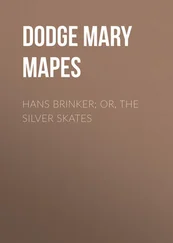Judging from the front cover, the book was a single-volume work on nineteenth-century English literature. It certainly looked as though it contained most of what could be written about the subject.
When she was only a few feet away, I could not resist saying: ‘Miss Filtvedt Bentsen, I presume?’
She came to an abrupt halt, lowered the book and looked at me, more than a little bewildered. The twinkle in her eye rapidly changed to curiosity when I produced my police ID. The first thing I heard her say was a surprise nonetheless.
‘How exciting. Am I about to be arrested? In which case, what for?’
She looked up at me with a teasing smile, but was serious again as soon as I said that I unfortunately had to ask her some questions regarding the investigation into the death of Marie Morgenstierne.
‘Oh, so it was poor Marie? I heard that a young woman had been murdered at Smestad on the radio while I was eating my lunch today. They didn’t give her name, but I was anxious to know whether it could have been her or Kristine Larsen. Then I reasoned that the chances of that were very slim. What a terrible thing to happen, and I will of course answer any questions you might have about the case.’
I stared at her, fascinated, and then shook the hand she held out towards me. Her handshake was firm and her expression somehow both concentrated and relaxed at the same time. I was surprised to notice a necklace with a small cross around her neck. I had heard that there were Christian socialists in the SPP, but had never encountered one before.
It occurred to me that she also disproved the claim that one of my colleagues had made that if there were attractive women in the SPP, he had certainly never seen one. Her fair hair fluttered in the wind. It seemed to me that there was something refreshing and free-spirited about Miriam Filtvedt Bentsen, something that made me more interested in her than the other three members of the group.
I nodded my agreement as soon as she pulled a key from her jacket pocket and suggested that we should go and sit down in the party office.
The SPP office was even smaller, dustier, more overflowing with paper and more deserted than I had imagined. There was no danger of us being interrupted as we sat on our chairs by a desk that looked like it was about to collapse.
Miriam Filtvedt Bentsen had now very definitely closed her book and given me all her attention. She leaned across the desk with obvious interest and concentration. I of course could not be seen to be any different. So five minutes after meeting for the first time, we were thus suddenly sitting in deep and focused conversation, our faces only inches from each other.
Miriam Filtvedt Bentsen quickly proved to have a considerably more nuanced view of Falko Reinhardt than the others who had been at the cabin when he disappeared. She agreed that he was an extremely intelligent and charismatic person, and obviously also very well read. He was perhaps one of the best linguists she had ever met. As a socialist, however, he was both too simplistic and too egoistic, and the group had acted too much like a personal fan club and too little like a political work group. The leader of the group was, according to Miriam, ‘one of those people who believed that the road was built because he started his car’.
Also, if Falko Reinhardt was a genius, he was a very distracted genius, according to Miriam Filtvedt Bentsen. She commented with a more sadistic than sympathetic tinkle of laughter that he often wrote lists about things, but the problems were rarely solved as he then forgot where he had put the lists.
In addition, Miriam Filtvedt Bentsen thought that when they were at the cabin, and in the weeks leading up to the trip, Falko had been troubled by something, but she did not know whether it was political or personal. She had on one occasion asked him outright, but he had not wanted to answer.
As for Marie Morgenstierne, Miriam Filtvedt Bentsen considered her a sensible and philosophical young woman who, ‘like far too many other young women today’, had lived in the shadow of her boyfriend. However, she thought that the relationship between Falko and Marie had been good up to the point of his disappearance. Miriam Filtvedt Bentsen had never met Marie Morgenstierne’s parents, nor Falko Reinhardt’s – or certainly not as far as she knew, she added with a mildly ironic smile. She had had regular contact with Marie herself until the split in spring 1969, after which they had never spoken again.
Marie Morgenstierne was, in Miriam Filtvedt Bentsen’s opinion, generally careful and considerate in what she said about others. She had, however, on one occasion after a couple of glasses of wine, intimated that she suspected that one of the other members of the group knew something about Falko’s disappearance. But when Miriam tried to follow this up, Marie had swiftly backtracked, and neither of them ever mentioned it again.
All contact was broken after spring 1969. Miriam knew nothing about what Marie had done in the intervening eighteen months, and she therefore feared that she would not be of much help to the murder investigation.
She looked a little sad when she said this; the case had obviously piqued her curiosity. I personally had absolutely no wish to finish our conversation, and so asked how Miriam had interpreted the events leading up to her leaving the group. She looked at me and asked what importance that might have to me or the murder investigation, but then jokingly added that she no doubt remembered things very differently from the rest of the group.
As she remembered it, Anders Pettersen had held one of his ‘long, passionate and nebulous’ lectures. His argument, in short, was that everything the USA did was wrong and that President Nixon’s hands were stained with human blood. China, on the other hand, was the new Soviet and a land of opportunity, and Mao was the greatest leader of our time. The SPP, with its half-hearted support, had proved to be a class traitor both in terms of the working class in Norway and the hundreds of millions of liberated workers in the Soviet and China. Anders’ conclusion, therefore – and he believed that Falko would have wanted the same – was that the group should split from the SPP.
As she remembered it, Miriam herself had replied that politics were more about making things right than being right. They should therefore join with the SPP and take part in the election campaign rather than splintering into an unaffiliated group which was not even a party, and which had no realistic chance of winning representation in that year’s election. Then she had added that there should be no doubt about the democratic stance of Norwegian socialists, and that if one used one’s eyes, it was easy to see that China and the Soviet were one-party systems and that both Mao and Brezhnev also had blood on their hands. She admitted that this was somewhat provocative, but that it was undeniably both true and important. I had no problem in agreeing with her.
Miriam Filtvedt Bentsen gave a crooked smile and assured me that she had not expected to win over the majority of the group. She had nurtured a faint hope that Marie Morgenstierne might come with her, but was not surprised when she left alone. And she had never regretted her decision to leave. She had come into contact with the group through her anti-Vietnam activities, and still agreed with them on that point. But she could not follow the group in their support of dictatorship, and had become increasingly provoked by their simplifications and partiality following the disappearance of Falko Reinhardt.
As far as surveillance was concerned, Miriam Filtvedt Bentsen thought it was overwhelmingly likely that ‘the group in general and Falko in particular’ were being watched, even though she had no direct evidence of this. In response to my question as to whether she thought there had been a mole in the group, she replied that she found that hard to believe and therefore did not want to speculate who it might have been if that were the case.
Читать дальше












